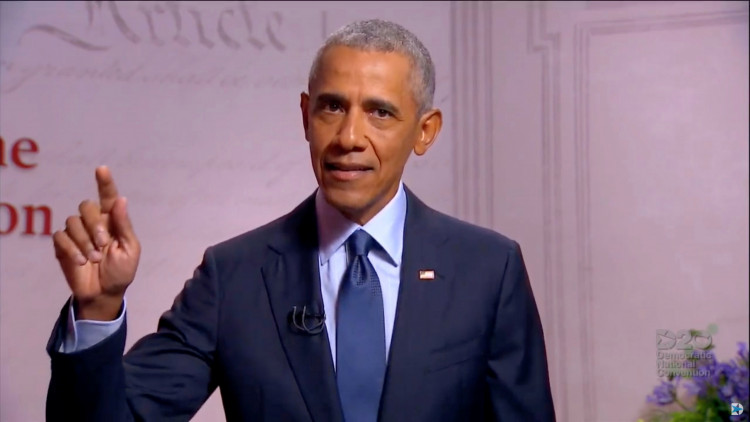Former President Barack Obama has sparked controversy after criticizing Black men for their perceived lack of support for Vice President Kamala Harris during his campaign stop in Pittsburgh. Speaking to an audience of Democratic supporters, Obama suggested that some Black men were reluctant to back Harris simply because of her gender, a comment that has drawn sharp rebuke from political leaders and social media users alike.
Obama's remarks came as he urged African American men to rally behind Harris, pointing to reports that she has struggled to generate the same enthusiasm among Black voters that helped propel his own historic campaign in 2008. "Part of it makes me think that, well, you just aren't feeling the idea of having a woman as president, and you're coming up with other reasons for that," Obama said, directly addressing the male members of the Black community. His comments quickly ignited a firestorm of criticism from both political allies and opponents.
One of the most vocal critics was former Ohio State Senator Nina Turner, who argued that Obama's comments were dismissive of the valid concerns Black men may have. "Why are Black men being belittled in ways that no other voting group [is]?" Turner asked during an interview on CNN's NewsNight. "Now, a lot of love for former President Obama, but for him to single out Black men is wrong." Turner's comments highlighted the frustration felt by many who believe that Obama's approach unfairly singled out a demographic that has historically supported the Democratic Party.
The backlash wasn't limited to Democrats. Conservatives also seized on Obama's remarks, with former GOP Representative Vernon Jones tweeting, "I don't have anything in common with Kamala. No Thanks BO, Blacks had enough of you and Kamala Harris." Fox News anchor Jesse Watters described Obama's speech as "mansplaining," adding to the criticism that the former president's tone was condescending and dismissive of Black men's perspectives.
Obama's comments have intensified scrutiny on Harris' campaign strategy, which has faced criticism for not adequately addressing the concerns of Black male voters. The Harris campaign, aware of the importance of engaging this demographic, has begun ramping up efforts to connect with Black men, with plans to introduce policies specifically targeting their needs. Harris herself responded to questions about her support among Black men by emphasizing that she does not take their votes for granted. "I'm working to earn the vote, not assuming I'm going to have it because I am Black," Harris said in a recent interview with the National Association of Black Journalists.
The friction over Obama's comments also comes amid new polling data showing a shift among young Black voters. A recent NAACP poll indicated that one in four young Black men supported Trump heading into the election, a significant shift for a demographic that traditionally leans heavily Democratic. Although 92 percent of Black voters backed Joe Biden in the 2020 election, the growing support for Trump among young Black men has raised concerns within the Democratic Party.
Obama's pointed remarks at the rally also referenced his belief that Black women have been the backbone of the Democratic Party, consistently showing up to support progressive causes and candidates. "Women in our lives have been getting our backs this entire time," he said, praising their role in movements and protests advocating for change. He contrasted this with what he implied was a lack of similar support from Black men, suggesting that some were not as enthusiastic about seeing a woman in the highest office.
Critics argue that Obama's approach has a history of singling out the Black community for lectures while overlooking similar behavior in other groups. Historically, Obama has been known to deliver tough-love speeches to Black audiences, urging them to take personal responsibility and work harder to achieve success. This pattern, some say, reinforces stereotypes rather than addressing the systemic issues that disproportionately impact African Americans.
Columnist Jonathan Alter once noted that Obama's most promising role was to provide moral leadership within the African-American community. Yet, this recent criticism raises questions about whether Obama's focus on tough love for Black voters alienates the very community that helped elevate him to the presidency. Critics like Jesse Jackson have previously accused Obama of talking down to Black people, a sentiment that appears to resonate with many in light of his latest remarks.
As Harris continues her campaign, she faces a delicate balance between appealing to her base and addressing the criticisms raised by both Obama and other Democrats. The vice president is scheduled to participate in a town hall event with radio host Charlamagne tha God in Detroit, where she is expected to directly engage with issues affecting Black voters, including economic inequality, criminal justice reform, and healthcare access.






